

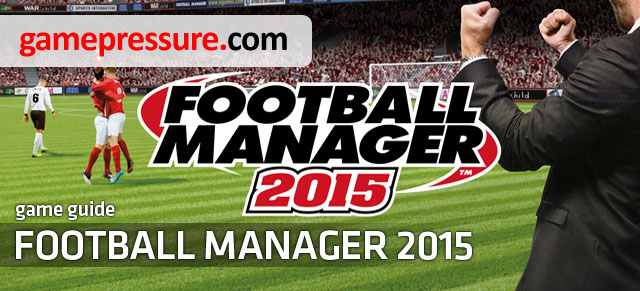
The guide to Football Manager 2015 is a complete source of information useful to every football club simulation created by Sports Interactive studio fanatic. In this guide you will find some handful information on specific aspects of your team, such as tactics, training, taking care of the mental state of your players and the right way to manage your team during a match. Here you will find some advices about transfers and player loans, how to secure your team finances and how to start with a selected team. There is a description of challenges to overcome in a specific game mode as well. In this guide you will find a list of young players and footballers that can be acquired for free without the need to pay a transfer fee. There is a complete list of Steam achievements and game system requirements as well.
Football Manager 2015 strategy guide contains:
Amadeusz "ElMundo" Cyganek ()
Even the best coaches have worse moments in their career - sometimes they get tired and need to look at their club from a different perspective. In that case it's a good idea to go on holiday. Coach responsibilities become his assistant responsibilities then.
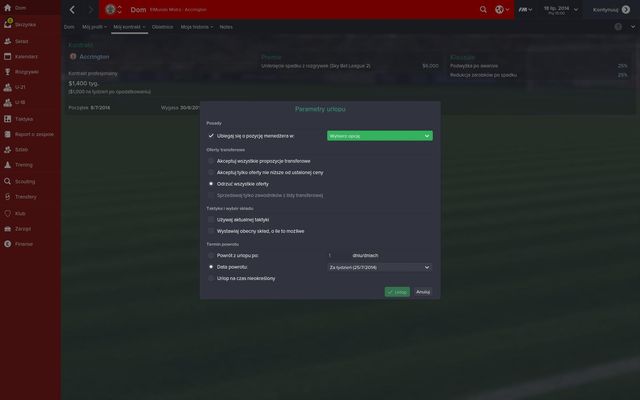
When you go on holiday, you must set some options that will help your assistant manage the club during your absence. You can decide whether your assistant will accept or decline transfer offers, you can order him to use the current tactics and, as long as it is possible, to pick the current squad for a match. When setting the date of your return, you can choose in how many days will you show in the club or when will you return to the team. You can choose an indefinite period as well.
If you don't want to return to the team, during the holidays you can search for a different club to manage as well.
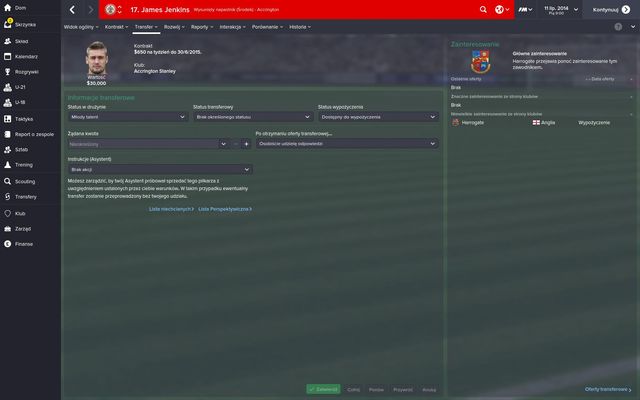
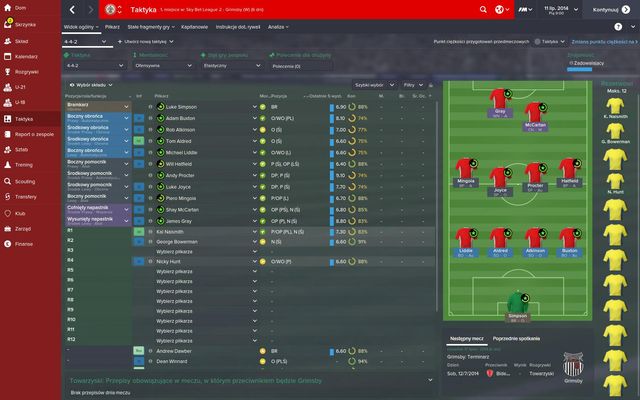
It's hard to answer that question. It all depends on what players do you have and what is your preferred play style. If you want a balanced formation, then the best choice would be 4-4-2. If you hope that your team will score many goals, then choose 4-3-3, 4-5-1 or 3-5-2. For defense, the best formation is 5-3-2 or 5-4-1 - having five defenders usually guarantee than your defense line is tight. It all depends on what rival do you stand against as well - if you're playing with one of the league top teams, then it would be a bad idea to go with an ultra offensive formation. It mostly depends on your intuition. You must remember that every setting can be customized in tactics menu.
There are two ways for that. First one is talking to one of the board staff - but in that case your request must be well justified or you must promise achieving some goal, like a specific position on league or promotion to selected phase in league cup.
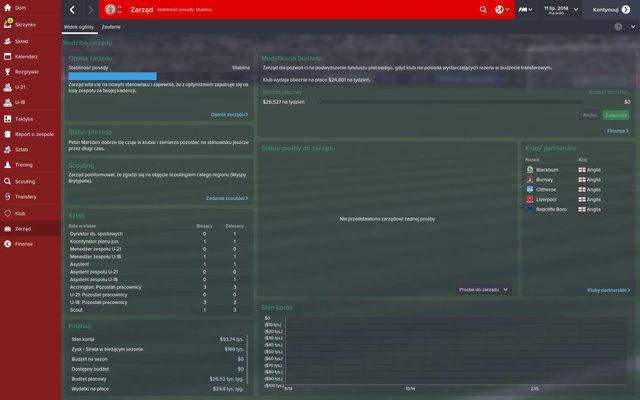
Another way is to change budget allocation - but in that case, you're sacrificing some of the transfer money for players salary. As it often happen in football - nothing is free.
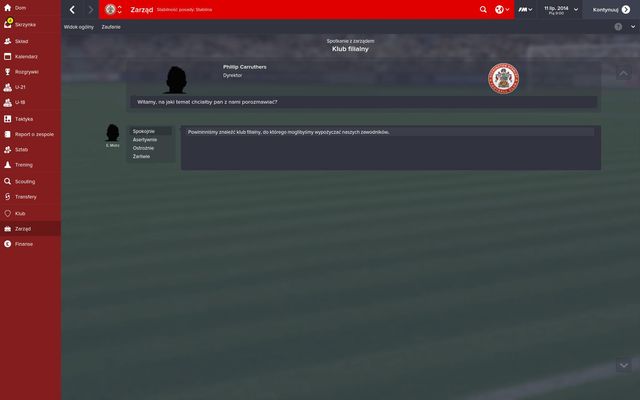
Feeder club is a great option when you're running a rich, meritorious club and you have a few players that don't have a chance to play in the first squad - then you can borrow them so they can gain experience. It's other way around with parent club - you can borrow some footballers for your team from a better club. You should use this option when you're running a club from lower league and you can't afford transfers or loans. To search those clubs, you must go to the "Club" -> "Partner clubs" menu. Every search must be preceded by talking with the board, which makes the final call.
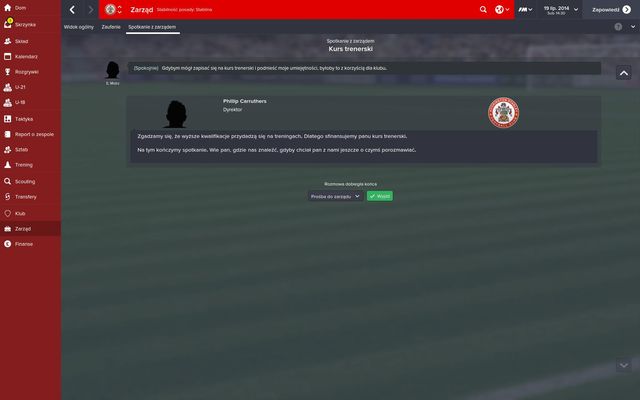
Whenever you want, you can start a coaching course and improve your qualifications. It will allow you to try yourself in stronger leagues, that is if someone will be interested in your services. A coaching course can be started in the "My profile" menu. Since conducting a course lowers your efficiency on the trainings, the board decides whether to allow you doing it.

The main Football Manager 2015 menu allow you to start the game in one of the two modes:
This guide has been prepared based on the Football Manager mode.
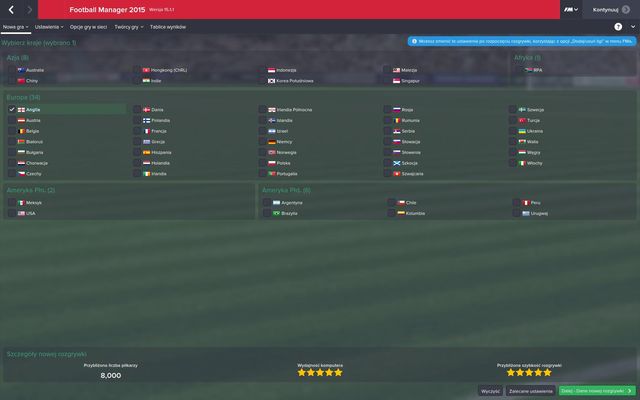
The next part of creating the career allow you to choose which countries matches will be simulated during the game. The more leagues you choose, the longer the day simulation will take. The game speed will be imaged by the amount of the stars. On this screen you also decide whether the player attributes should be visible and whether the transfer budgets should be active during the first transfer window.
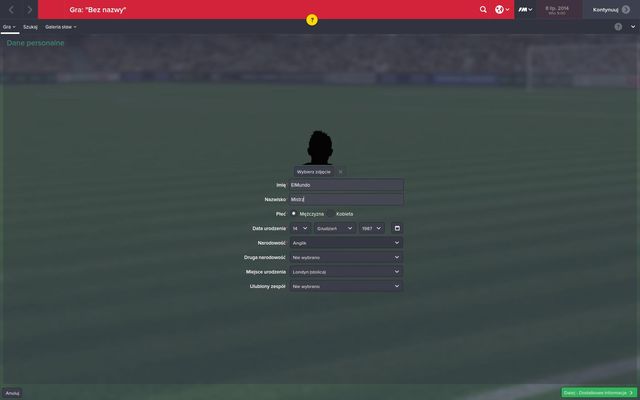
Next you must set your character - first and last name, nationality, sex, place of birth, favorite formation and languages in which your coach is fluent. You can connect the game with social media and share your progress with your friends as well.
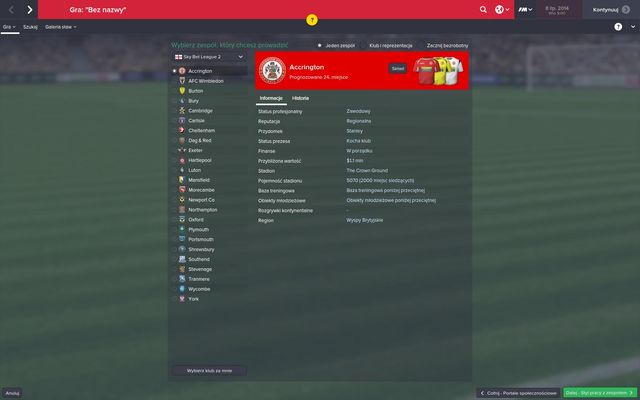
Next step is the most important - you're selecting the club which you will manage during the beginning of your coaching career. The game allows you to choose a club, a national representation and even to start the game as an unemployed coach. For this guide, I have selected an outsider club from Sky Bet League Two, the fourth tier of the English football league system - Accrington Stanley.
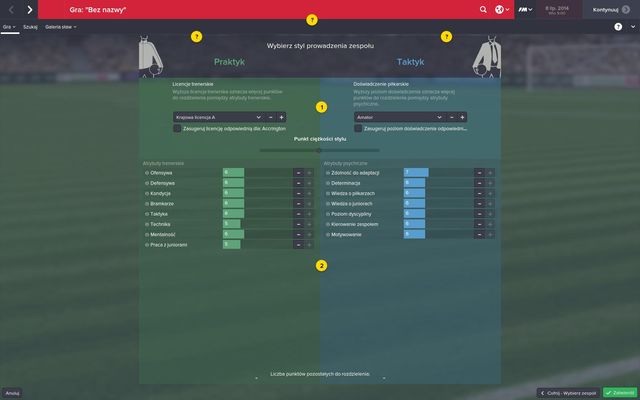
Next screen will allow you to create an individual coach profile and to distribute points between different attributes, both training skills and mental attributes. First you will select the right coach license and football experience - the amount of points to distribute depends on that. You shouldn't give yourself too much points, because the board will give you more challenging goals to achieve if you're references are too good. You should live the choice to the game, which will automatically propose the right settings for the club selected. Then distribute the points just like in a RPG game - based on your own preferences.
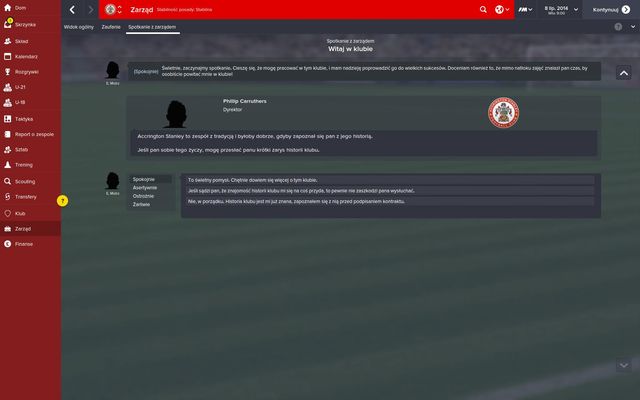 Let's avoid any faux-pas at the start!
Let's avoid any faux-pas at the start!First thing you should do to quickly enter the club structures is to meet every one of its workers whom you will be dealing on daily basis. Conduct a series of meetings with assistants, scouts, team captain and players. This is where you can set some of the aspects of coaching staff like:
A talk with the players will allow you to show your expectations for the footballers and select who will do the set pieces. Those settings can be changed anytime in the tactics menu.
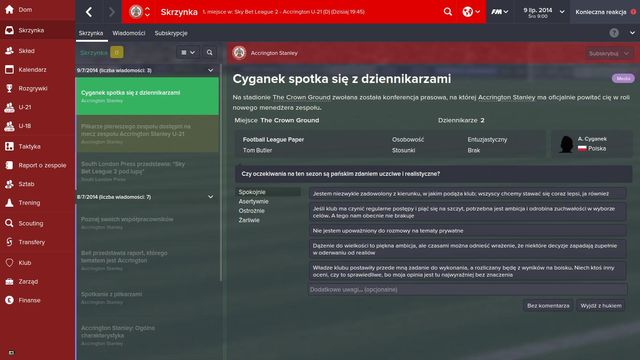
It's common knowledge that in football it's good to live in peace with journalists. You should organize your first press conference, which might have a great impact on the way you are seen not only by the media, but by the fans as well. The more prestigious club you run, the more important it is how well do you deal with journalists.
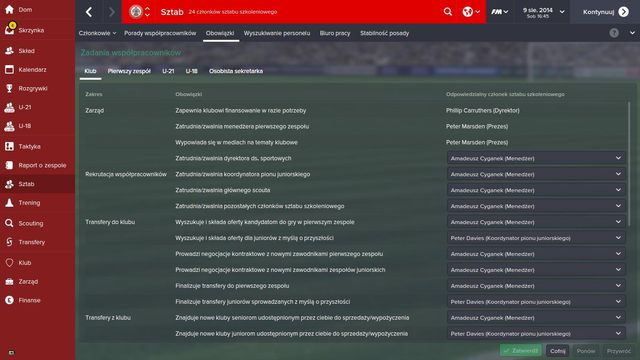
Even if you would like to control every single aspect of your club, it is simply impossible. If you would try anyway, the effects wouldn't be too good. That's why you should give some of your responsibilities to other coaching staff members. You should definitely entrust them with managing the junior teams - while taking care of the first eleven, you might not keep up with the needs of the youngest ones. Here you can order your secretary how to sort transfer offers.
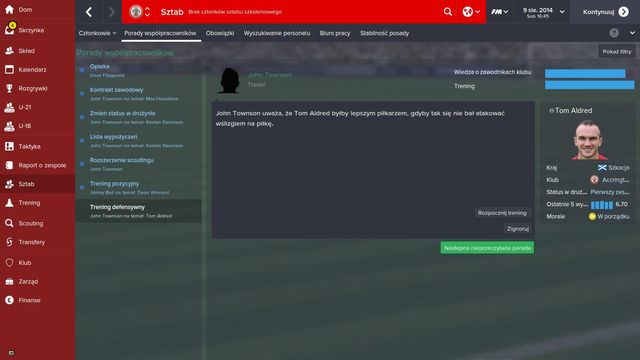
It's a very interesting section which can inform you about situations that otherwise you could have missed. Your assistants show you the weak points of specific players and give you advice about the transfer politic, mentoring the juniors or making new contracts. Most of those advices are very useful and you should visit this section regularly.
Team training option allows you to set the direction in which your first team players develop - both their tactics and general abilities, on which you will focus your training plan. In the latter you will find seven options:
Balanced
This option allows you to increase all abilities of your team, including physical fitness, technique and tactics. It's especially recommended at the beginning of adventure with the club, when you're learning the weaknesses of specific footballers.
Fitness
It's a good choice during the breaks in games. Then you can order your players to focus their condition and have enough time for them to rest before they return to the pitch.
Tactics
Focusing on tactics is good when you're changing players position or trying new formations.
Ball control
This setting is good to use from time to time - it improves technique and reduces the amount of loses, especially in the central parts of the pitch.
Defending
Just as the name suggests - it focuses on defense. If your team loses many goals, it's a mandatory choice.
Attacking
Training offensive variants is important when you don't score too many goals. This training includes improving set pieces and shooting competitions.
Team cohesion
This is important when you see that your players doesn't cooperate with each other too well. You should sacrifice some time for that aspect of the training, since understanding on the pitch is a vital part of the way your team functions.
You should force the right rigor of training every week - the intensity of the workouts is important as well. You shouldn't overdo with it - a tired player is a weak player, and overload has a bad impact on the morale. In that case you can always decide for a rest before and after a match - the later is especially recommended since it allows to return to the form in a natural way.
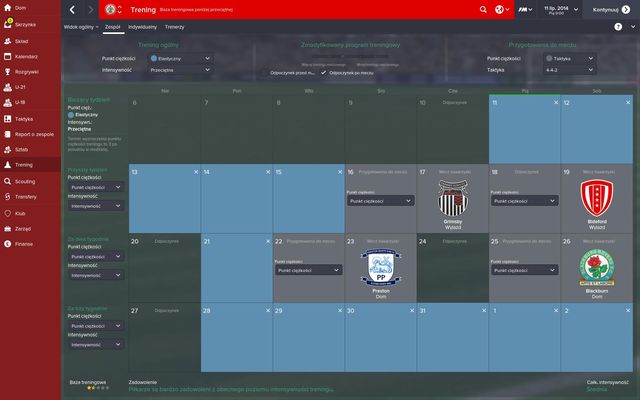
Another section focuses on preparations for a match - there you can set player positions on the pitch that you have decided will be best and select the right type of trainings that can allow your team to win. You should pay attention to staff reports and analyze weak points of your rivals - it will definitely help you win.
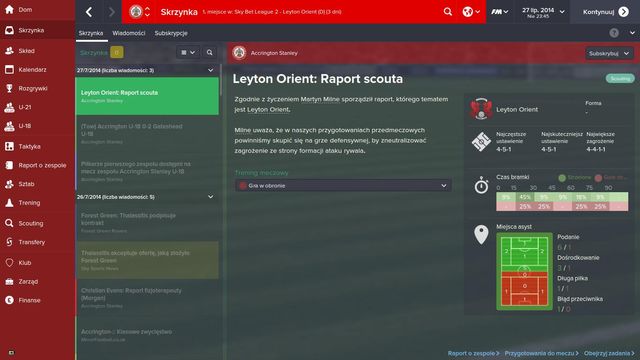
Preparations should begin with analysis of scout report, that includes the vital information about your rival. During the match day you can see a message in the inbox where the report can be found.
In the report you will find estimated squad of your rival and roles of specific players. But that's not all - scout will analyze recent rival matches, his tactics and how well was he playing with specific formations. It will give you some image of what you can expect an how will he be probably playing. Scout will give you some advices on what should you focus training directly before the match - you should use those advice.
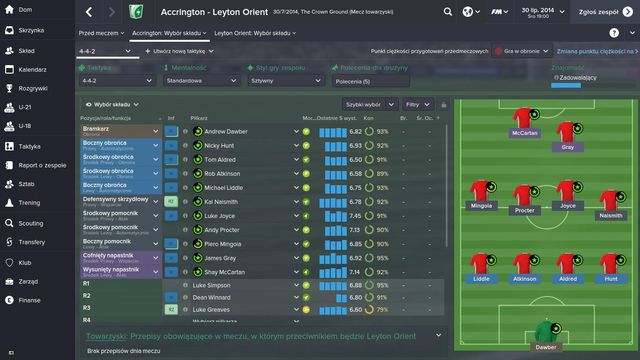
Team submitting screen is the last chance for you to change tactics or the starting eleven. Players can be freely selected and moved on the pitch model - but keep an eye on the bar that shows how well does a specific player fit a selected position and how good of use will he be for the rest of the team.
This screen allows you to quickly change position on the pitch, select one of the seven mental settings (contain, defensive, counter, standard, control, attack, overload) and decide how much flexibility do you give the team in regards of imposed tactic. This panel allows you to change the pre-match training focus and warm up, but you shouldn't change that as it might have bad impact on team cooperation.
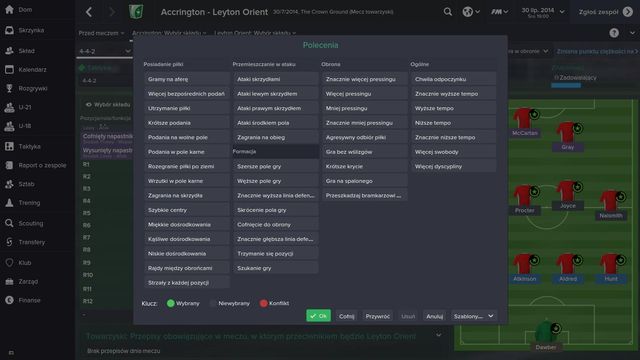
Instructions allows you to determine the basic tactic elements and how will your players behave in specific situations on the pitch. You can choose as many instructions as you want, but remember that selecting one of them eliminates the one that is contradictory to it. There are five groups of instructions:
INSTRUCTION
DESCRIPTION
Go route one
Instructs your players to look to get the ball into the attacking third with increased urgency, playing long balls over the midfield and into dangerous attacking areas quickly.
More direct passing
Instructs your players to adopt a style of passing based around a quicker transition from back to front, with the ball covering long distances in a shorter amount of time.
Retain possession
Instructs your players to prioritize keeping hold of the ball.
Shorter passing
Instructs your players to adopt a style of play based around shorter passing and greater ball retention.
Pass intro space
Instructs your players to look to make passes into space.
Work ball into box
Instructs your players to work hard for their opening, remaining patient and not forcing the issue.
Play out of defence
Encourages defenders to pass their way clear from the back rather than clear the ball long.
Pump ball into box
Instructs your players to launch high, long-range passes into the opposition's penalty area.
Clear ball to flanks
Instructs your players to look to make their clearances into wider areas to be picked up by attacking players.
Hit early crosses
Instructs players to cross the ball early.
Float crosses
Instructs your players to play high, floating crosses into the penalty area with the intention for the ball to hang in the air and allow a forward to position himself sufficiently to take advantage.
Whipped crosses
Instructs your players to deliver balls with pace, dip and swerve in order to make it as hard as possible for defenders to deal with them.
Low crosses
Instructs your players to play quick and powerful crosses into the penalty area with the intention of catching a defender off guard against a quicker forward with good movement.
Run at defence
Instruct players to run at the opposition more than your tactics allow by default.
Shoot on sight
Instructs your players to shoot when the opportunity arises instead of waiting for a more clear-cut opening.
INSTRUCTION
DESCRIPTION
Exploit the flanks
Instructs your players to look to take full advantage of wing play, perhaps due to an opposition weakness.
Exploit the left flank
Instructs your players to look to take full advantage of the left wing, perhaps due to an opposition weakness.
Exploit the right flank
Instructs your players to look to take full advantage of the right wing, perhaps due to an opposition weakness.
Exploit the middle
Instructs your players to look to take full advantage of playing through the middle, perhaps due to an opposition weakness.
Look for overlap
Instructs your players to hold onto the ball and look for an overlapping player in support, most likely a marauding full-back.
INSTRUCTION
DESCRIPTION
Play wider
Instructs your players to look to stretch the pitch and play wider.
Play narrower
Instructs your players to look to narrow the field and play in the middle of the pitch.
Much higher defensive line
Instructs your players to adopt a much higher position on the pitch, closer to the halfway line, in a bid to compress the space in which the opposition can play whilst remaining close to their midfield team-mates.
Push higher up
Instructs your players to play higher up the pitch, starting with the line the defence holds, which should be close to the halfway line if this option is chosen.
Drop deeper
Instructs your players to retreat into their own territory and defend it from there.
Much deeper defensive line
Instructs your players to adopt a much deeper position on the pitch, retreating into a more compact shape closer to their own goal to prevent the opposition from exploiting space in behind them.
Stick to positions
Instructs players to stick to their primary duties in their assigned position. It does not allow for fluidity of movement.
Roam from positions
Instructs players to be more creative and fluid with their positional locations on the pitch, demanding sufficient tactical awareness so one player is able to fill in for another who has roamed from his position.
INSTRUCTION
DESCRIPTION
Close down much more
A very strong pressing - it creates windows of opportunity for your rival in other formations.
Close down more
A strong pressing that starts on the rival half of the pitch.
Close down less
This setting basically means leaving the fault formations and control of the predefined positions.
Close down much less
A defense focused on protecting the gate, sometimes it stops attacks on other parts of the pitch.
Get stuck in
Instructs your players to be aggressive and strong in the tackle. This may increase the risk of fouls and disciplinary action.
Stay on feet
Instructs your players to stay on their feet when making tackles instead of going to ground.
Use tighter marking
Instructs players to adopt a tighter marking scheme in defensive situations where players are encouraged to stick particularly close to their assigned opponent in order to prevent them from attacking the ball.
Use offside trap
Instructs the team to operate with the offside trap.
Prevent short GP distribution
Instructs your forward players to press the opposition high up the field in order to stop the goalkeeper being able to distribute the ball over shorter distances to defenders and instead take risks or have to resort to a longer delivery.
INSTRUCTION
DESCRIPTION
Take a breather
Instructs your players to keep hold of the ball and simply take a moment to recover physically before attacking again.
Much higher tempo
Instructs the team to go about their business in a more urgent fashion, moving the ball around quickly and decisively, using the intensity of their approach to unsettle the opposition and eventually tire them out.
Higher tempo
Instructs the team to go about their business in an urgent fashion, moving the ball around quickly and decisively, using the intensity of their approach to unsettle the opposition.
Lower tempo
Instructs the team to go about their business in a considered and patient manner, taking their time with the ball and often retaining possession in order to retain control of the game.
Much lower tempo
Instructs the team to go about their business in a more considered and patient manner, taking their time with the ball and often retaining possession with no great short-term purpose, with the intention to retain control of the game.
Be more expressive
Allows more creative players the freedom to play the game with additional creativity and flair outside of the confines of a team's tactical setup.
Be more disciplined
Asks players to play as part of a robust and focused tactical shape in order to make the team a stronger collective group. It may come at the expense of some individual expression.
Penultimate important pre-match screen allows you to give instructions on particular players of the rival team. The orders are divided into four categories:
In all of those categories you can give an order that will efficiently reduce capabilities of selected rival player. It's a good idea to force using the weaker leg that is not preferred by selected footballer - only the greatest stars are capable of playing with both legs. Trying to close a footballer on one of the sides might eliminate any threat he might be. Keeping a watch over a specific player can be a good way to eliminate him from receiving passes - and it might frustrate him enough to become more aggressive.
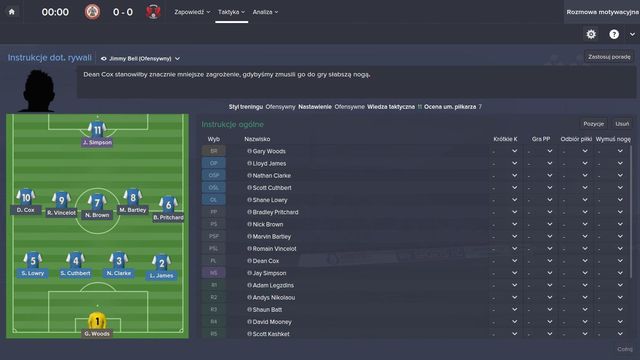
In this section you should listen to advices from backroom - they often show you interesting aspects of some players and they allow you to reduce the threat that some of them might be to your team.
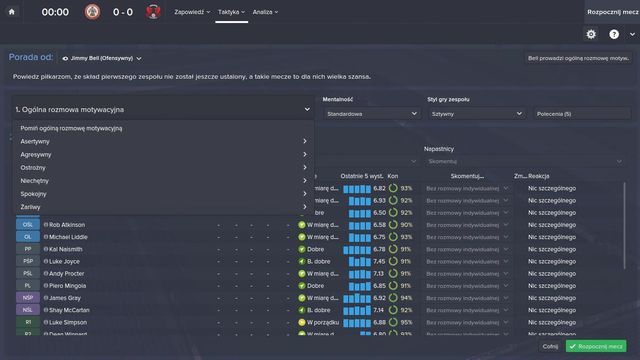
Team talk is the last, but very important part of match preparations. The right attitude of your players has a great impact on the match result. There are three types of talks in the game: to the whole team, specific positions and individual players. It is good o remember that the style of the speech you give should correspond not only to players morale and general situation of your club, but to the character and mentality of your character as well. If what you're saying feels false in respect to the way you are, it might be badly received by the players and have negative impact on their play. If you don't have any idea for a good speech, you should consider giving that task to your assistant, who will advise you with the best possible solution to that problem.
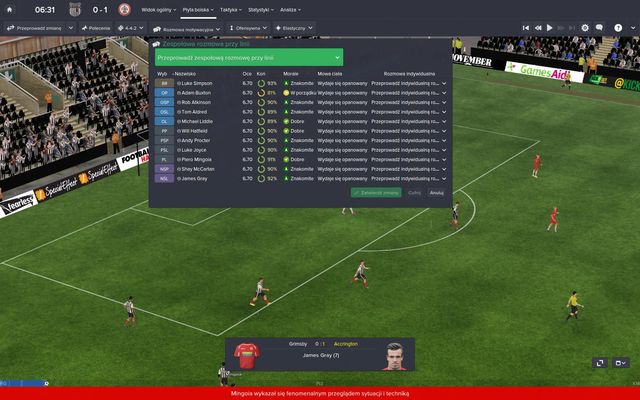
Football Manager 2015 interface is very simple to use. The elements that can be used have been marked with different numbers:
1 - Make a substitution;
2 - Shout instructions;
3 - Formation;
4 - Team talk;
5 - Mentality;
6 - Playing style;
7 - Settings (speeding and slowing the game, camera rotation etc.);
8 - Tactics;
Every panel will be described in the following subchapters.
Make a substitution panel is very simple and intuitive, all changes can be made by utilizing the "drag and drop" method. Condition and commitment bars with assistants hints will tell you who should be quickly changed. Remember that a too early substitution might lower a player morale, so you shouldn't abuse this option.
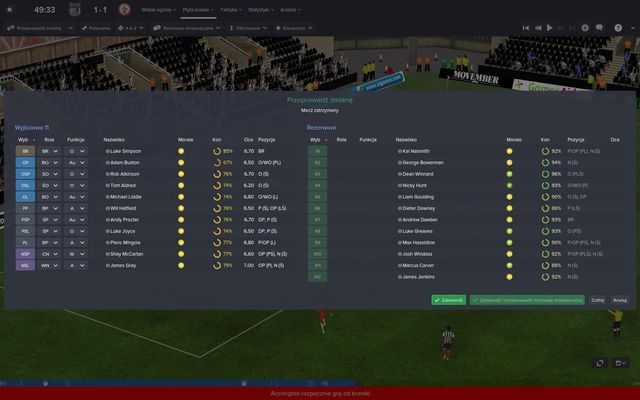
Shout instructions panel gives you opportunity to use the instructions during the game and react dynamically to situation on the pitch. A full list of them with description is available in the "Match preparations" chapter.
The formation module allows you to quickly change your team formation and change players position by selecting a proper tactic - you can choose formations like the standard 4-4-2 or 4-3-3 and 3-5-1 as well. The choice is yours.

Team talk allows you to influence a selected player morale - you can talk to the whole team, a specific formation or individual player. Such speak is available at any moment of the match.
Mentality screen allows you to change players behavior when facing a dynamical changes of the situation on the pitch. You can chose from seven different options, such as defensive, focused mostly on protecting the gate and superoffensive, in which what happens behind isn't too important for the footballers.
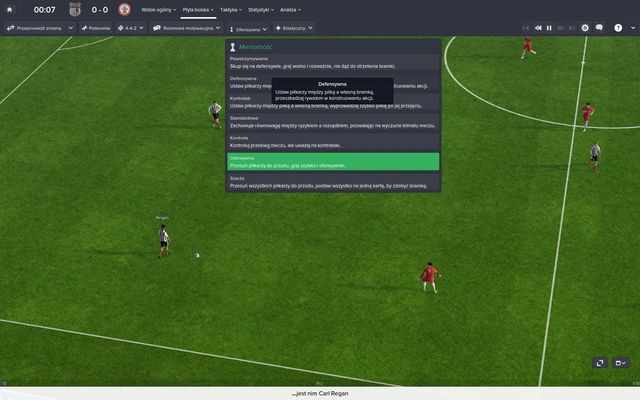
Playing style panel allows you to decide whether players should strictly follow the tactics determined before the match or should they have more free will and decide themselves how should they play.
Tactics screen allows for complex team management, similar to the pre-match panels. You can change here pretty much everything - formation, pitch orientation, make substitutions or change player position by moving their shirts over the pitch model.
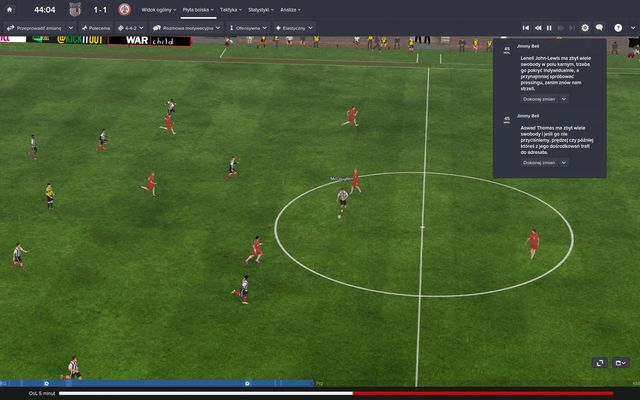
From time to time you will receive a message from your main assistant. They refer to many different issues, but mostly they tell you about bad tactic decisions, the lack of possibility to stop some player or bad player condition that stops one of your players from being effective. Every message has one of two buttons. If your assistant tells you that you should substitute some player, then you can click an adequate button and quickly move to the substitution screen and make the right change. When the advice is focused on tactical manners, then you can click the "Make changes" button and make the right changes automatically.
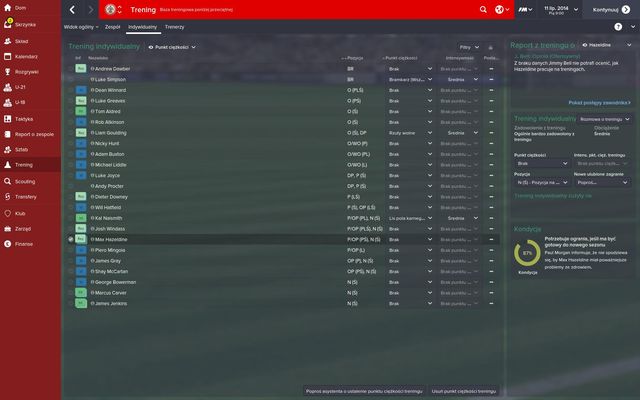
Just like in the team training, you can decide on what should the coaches focus while creating the training rigor for specific player. Those abilities are grouped by position on the pitch:
Goalkeeper:first touch, free kicks, handling, kicking, penalties, throwing, composure, leadership, agility, balance, jumping reach, quickness, stamina, strength, positioning.
Field players:corners, crossing, dribbling, finishing, first touch, free kicks, heading, long shots, long throws, marking, passing, penalties, tackling, technique, composure, leadership, off the ball, positioning, agility, balance, jumping reach, quickness, stamina, strength.
Selecting a role allows you to change the position on which the player usually appears - it allows you to change his abilities for a new tactic or formation.
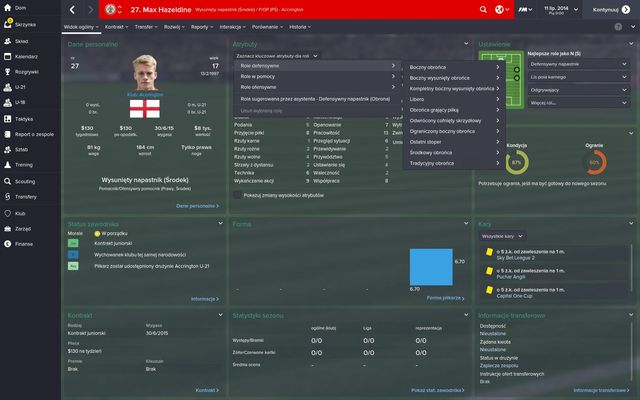
ROLE
DESCRIPTION
Goalkeeper
Concentrates on the basic aspects of playing as goalkeeper - resuming the game, interventions and playing the ball away from the goal.
Sweeper keeper
A goalkeeper that plays like Manuel Neuer - he often leaves the gate, he is the last line of defense and he plays well with his legs. It is a recommended role for goalkeepers whose basic skills are very well trained.
ROLE
DUTY
DESCRIPTION
Central defender
Defend, Stopper, All, Cover
A defender that protects the direct access to the gate. He is responsible for stopping the rival strikers and cleaning the penalty area in case of cross. He is usually the leader of defence formation.
Full back
Attack, Defend, Support, All
A defender that plays on pitch wings - he is usually tasked with playing counter or helping the wingers. He is crucial in stopping the adversary.
Wing back
Attack, Defend, Support, All
A defender with bigger predispositions to play in the offence who has less defence tasks - great for quick provocations.
Ball playing defender
Defend, Stopper, All, Cover
Defender who's creating plays and concentrates on maintaining possession of the ball and distributes it to his teammates.
Limited defender
Defend, Stopper, All, Cover
Defender with traditional tasks, attacks opponents half if tactic requires so. Tough, prefers to steal ball in easiest way.
Sweeper
Defend, All
Player responsible for mending holes in defense, the last instance in defense. Defensive-minded player, cleans the box and focuses mainly on stealing the ball.
Limited full back
Defend, All
Defender playing only in the chosen area of the field, sticking to it and feeling good in the area abovementioned.
Complete wing back
Attack, all
Offense is what makes him feel like a duck in the water, enjoying play on the wings - suits perfectly as a player in counterattacks, able to cross the ball to the forward. Without major defensive tasks, prefers playing forward, plays a role of "false midfielder".
ROLE
DUTY
DESCRIPTION
Defensive midfielder
Defend, Support, All
Defensive midfielder focusing on distracting enemy attacks and starting counter attacks. Operating in the middle field and stands as the last line before the defense line.
Central midfielder
Attack, Defend, Support, All
Central midfielder is in a way equilibrium of the strikers and defenders - the ball sticks mostly to him although his play creation is limited.
Deep lying midfielder
Defend, Support, All
Player responsible for starting offensive plays - also supporting defensive line.
Box to box midfielder
Support, All
Midfielder who must possess great condition as he is to cover long distance during the match. An omnipresent player of both defensive and offensive tasks.
Advanced playmaker
Attack, Support, All
Player responsible for making key passes, mostly aimed to strikers. In general, he has the most assists in the team.
Ball winning midfielder
Defend, Support, All
Player of similar tasks as defensive midfielder - however, he is not responsible for creating actions, his goal is to clear the mid field area.
Half back
Defend, All
Defensive midfielder fits mostly in the defensive set-ups while the midfielders line is shifted to defense. More beneficial in stealing the ball and defense rather than offense, although he often possesses ability of good shoot from distance.
Regista
Support, All
Retreated freelancer who has no clear tasks, he's mostly responsible for creating the plays.
Inverted Wing Back
Support, All
Defensive forward standing as a platform between defense and midfield - his responsibilities are creating plays backwards or passing the ball to the other direction of the field.
Roaming playmaker
Support, All
Player focusing mainly on creating plays, no clear tactic discipline and defensive tasks.
Wide midfielder
Attack, Defend, Support, All
Midfielder responsible for side areas, has characteristic features of classic midfielder.
Winger
Attack, Support, All
Responsible for creating plays nearby side - often with good condition and inclination to perpendicular passes.
Offensive winger
Attack, Support, All
Offensive-minded midfielder, often standing as platform between midfielders and strikers, operating in front of penalty box.
Defensive winger
Defend, Support, All
Forward operating in the middle of the field, focuses on passing the ball forward and stealing it.
Wide playmaker
Attack, Support, All
Playmaker responsible for making wing plays, not fond of passing the ball to the midfield.
Raumdeuter
Attack, All
Versatile player, who can both retreat to the defensive line and score a goal - example: Thomas Muller.
Enganche
Attack, All
Plays a significant role of pivot - is set in the middle field, creates plays to the side and forward.
ROLE
DUTY
DESCRIPTION
Deep lying forward
Attack, Support, All
Striker operating on the edge of penalty box, mostly in front of the defense line - his attribute is good shoot from distance.
Advanced forward
Attack, All
Offensive-minded player, often on the verge of offside - often messes up with opposite defenders. Active, looking for perpendicular passes.
Target man
Attack, Support, All
You can count on him in terms of quick passes - his task is to pass back as soon as possible to a teammate nearby.
Wide target man
Attack, Support, All
Similar characteristic as enacted - in this instance operating on the side of the field.
Poacher
Attack, All
Mostly occupies enemy penalty box - he feels like a duck in a water, possessing physical strength and good head shooting.
Complete forward
Attack, Support, All
Striker able to both shoot with head and from the distance. Solid in physical clashes with opponent. Unspecified in given offensive type.
Inside forward
Attack, Support, All
Striker operating on the wings and closing out to the penalty box. Decent crosser.
Defensive forward
Defend, Support, All
Striker who is considered as support striker - first line to stop enemy counter attack.
Trequartista
Attack, All
Player taking care of the whole offensive play - can both shoot well from distance and pass the ball in penalty box. Omnipresent.
False 9
Support, All
Player responsible for tearing apart enemy defensive line - decoying defenders and therefore enables forward pass to take place.
Deep lying forward
Attack, All
Stands for the support, messing up in the penalty box, active and crossing long distance during match. Apple of the enemy's eye - no clear tasks provided.
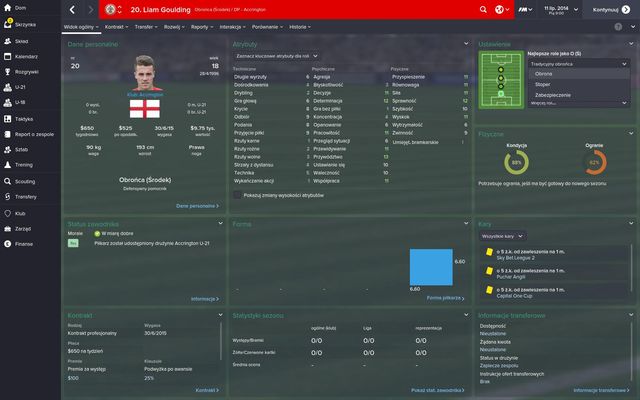
A change of position on the pitch is an option that coaches are very eager to use - it allows them to create a comprehensive player, that can easily manage in different match variants and can dynamically react to tactical changes. Football Manager allows to usually change qualifications of a player - you're only limited by your own ideas. It is a god way to deal with shortages in your team when you don't have enough money for transfers or some of your players suffer from concussion.
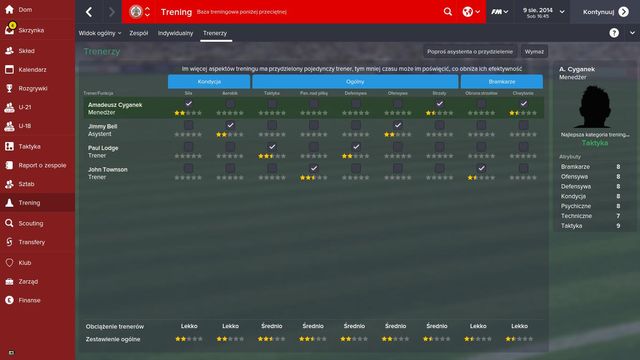
Training the coaches is a very important part of improving the training staff - the better their training parameters, the more effective they can train their ward. You should give responsibilities evenly - if one of the coaches will have too much to do, then his effectiveness will be far lesser. What effect will a training have can be see thanks to the stars at the bottom of the screen.
Scouting in Football Manager 2015 is not only about searching new good players for your team - it is a team of people that gives you important information about teams that you will have to face as well. Obviously, the most important task of your scouts is to find future footballers for your team - in the scouting panel you can decide what sort of new player do you want: whether he is supposed to be a part of your first eleven, a junior, or reserve player. Then you can precisely set his position on the pitch and what duties will he have.
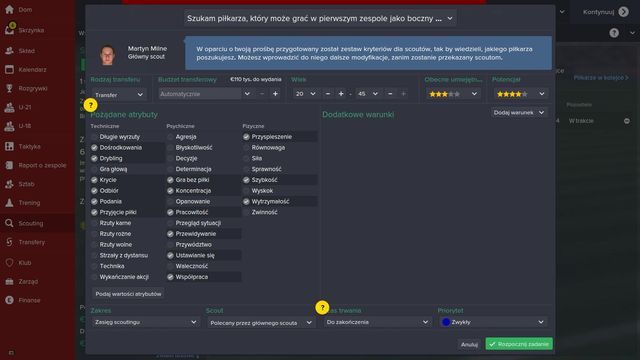
Next screen allows further deciding the requirements of future players - you decide what age should they be, their current skills, potential, and how do you intend to posses him (transfer, loan, free transfer). It's not all - you have access to tens of attributes, that you can set in order to find a perfect player. If you're not sure what exactly do you want from a new player, the game can help you when you select what position are you searching a player for - it will show a set of abilities typical for that sort of players. Finally, you decide what is the area of search - the best clubs can search practically all over the world, while the less wealthy ones are mostly limited to their country and the neighboring ones.
Player search process has been changed since the previous installment of the series. Now to search a player you can use a special bar at the top of the screen in the manager panel. There you can type in any name, and from the search results quickly start transfer negotiations.
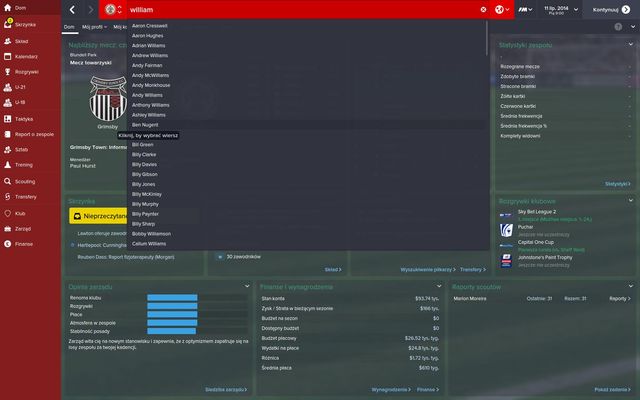
Another way to find a player that meets your requirements is through the scouting panel - there you can find a list of players that meets your needs - in age, skills, and financial expectations as well.
Offering a contract seems to be a simple process, but in fact there are many factors that influence the decision whether you can afford a specific player. First and most important factor is the transfer fee that you must pay to another club for a player. But it is not only a one-time fee, but optional, additional fees as well:
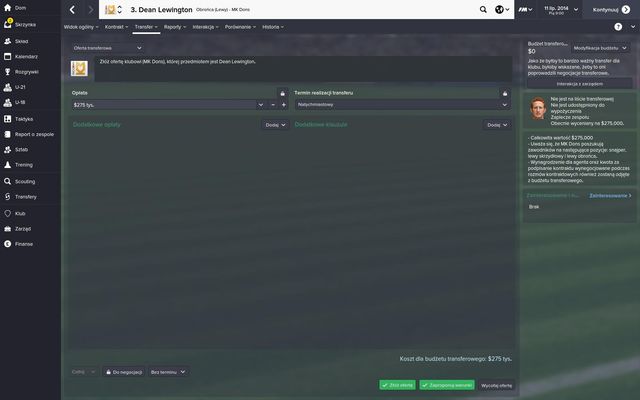
Additional clauses might come in handy as well:
Effectiveness of an offer can depend on time limit for completion as well - especially in case of players that are vital for the team, the bosses will be more eager to accept an offer which realization is due to be done at the end of their country's season. After making a transfer offer all you have left to do is to wait for a response.
If your club isn't too wealthy, it is a good idea to loan a player. Very often rich clubs that loans players don't expect other clubs to pay players salary in exchange for them playing regularly in the team - it is a good way to save some money.
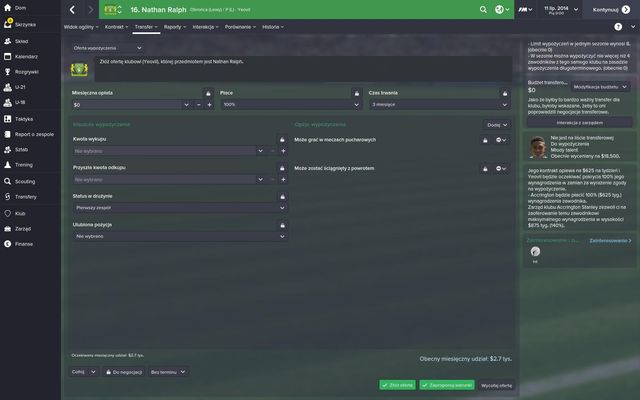
The crucial in loaning is the length of loan (precise to one month) and percentage of salary that you will pay for the loan. You should negotiate a lot, especially if you're a feeder club - in that case it is easier to negotiate better terms.
It is possible to set the price of future buyout for which you would be eager to transfer a player to your club - the expected status of a player in your team will be very important for the team that loans a player as well. If it is higher, then it is easier to loan young players with prospects. However, you shouldn't be too optimistic with prognosis, because clubs that are not happy with results might take a player back based on such a clauses or even end any form of cooperation with the club.
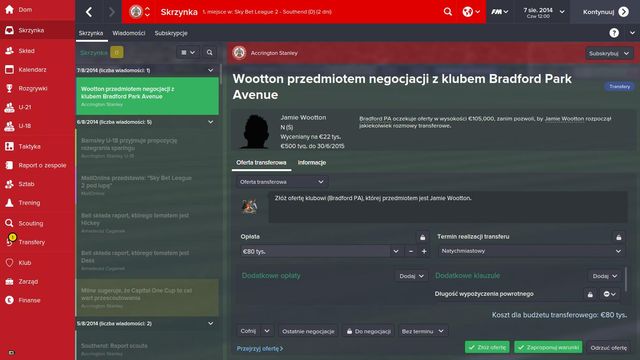
It is highly unlikely to happen that a club you show your offer agrees to it without negotiations. That is why it is important to slowly and carefully fight for the best terms of buyout. Don't ever offer a price that is higher than the actual worth of a player - a club will want 20-30% more than the market value of a player anyway. During the negotiations, you should consider some additional clauses or fees. Negotiations usually aren't easy, especially in case of multimillion expectations, but it is wise to be patient - sometimes you will be able to bargain price that is lower than the market value of a player.
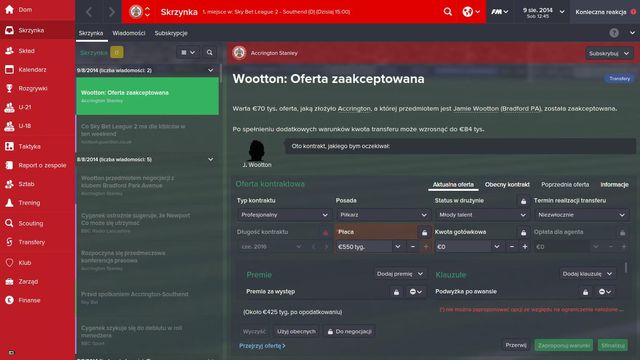
If you come to an agreement with a club and are given a green light to further actions, you can start the final part of fight for a player, that is negotiating with him. Very often after completing the first, harsh part, it all falls down at this part of the negotiations. It's not only a matter of your parsimony - it is a matter of exorbitant expectations of the players and the greed of the agents, that always want to gain the most profit from a transaction as well. Those negotiations are very dynamical and it's hard to predict in which direction will they go, so you should play them slowly, gently changing the salary to met with players expectations. Remember to take care not only of the club finances, but the so-called fair play finances as well - if you exceed them, then you will be given a penalty.
In this challenge you control a selected club that is several points away from a safe position. You have to go up the table in less than half of the season. You should use one of the better clubs for this challenge - it will be far easier then.
Regardless on the team you choose, the amount of injuries in your team may give you a headache. The hardest thing is that main players of your first team are injured. Your goal will be to fight for the best position in the table. You should choose a club that has a great variety of players - such like Chelsea, Bayern or Real Madrid. Playing with those clubs is far easier as well.
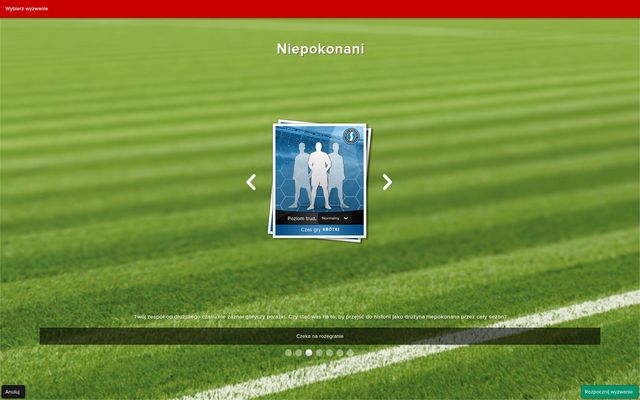 Time will tell!
Time will tell!It doesn't happen too often that a team is undefeated for a few months, and even a whole season. That will be your task. Of course, it is easier to achieve with some favorable circumstances. Try to select a team, whose pre-season aspirations are to win a league or get the second place - they are the best choice for this challenge.
Of course you can, and you will prove it. It won't be an easy task, since most of your players are from the junior teams, so you will have an army of kids, who are not experienced and lacking skills. You must focus on team cooperation and tactics that will use the most from best juniors - so listen to your advisors and modify your strategy often.
You can be disliked by many - juniors, fans, assistants. But if the best players of the team have a problem with you, then you have serious trouble. That is the case in this challenge - the veteran players disagree with board decision to hire you and they openly dislike you. Getting good results with such atmosphere is impossible - so you must gain trust of the team. You should avoid removing the players that have a conflict with you from the team - the effects can be very bad. You should talk with the players a lot.
An uncommon situation - a team that was in one of the lower leagues suddenly gets to the higher one. You must do whatever you can to stay in the league. You should choose a team from the back of the top division - selecting any other club will not only make the game harder, but will make the disproportion between the players very visible.
Taking care of the finances is one of the more important aspects of running a club and that is the problem that you will have to deal with in this challenge. Your club have a great financial trouble and you must not only do something about it, but keep the club results on a specific level as well. You will have some difficult decision to make from the very beginning - you will have to say goodbye to some of the players and reduce salary of other ones. You will have to reduce the scouts activity and forget about any transfers.
Young players and juniors with prospects for the future is a long-term, but very profitable investment. Having talented young ones secures the continuity of your squad and gives an opportunity for great profits if their development will go the right way. Here is a list of young players that you should be interested in. Their age is lower than 20!
Value of a player is shown in Euro, the salary in weekly salary with the tax.
Name
Club
Position
Value
Weekly salary
Simone Scuffet
Udinese
Goalkeeper
2,2 million
10,75 thousand
Kepa Arrizabalaga
Athletic Bilbao
Goalkeeper
325 thousand
3,1 thousand
Ruben Blanco
Celta "B"
Goalkeeper
300 thousand
3 thousand
Stole Dimitrievski
Granada
Goalkeeper
240 thousand
850
Alex Meret
Udinese U-20
Goalkeeper
275 thousand
650
Filippo Romagna
Juventus U-18
Defender
350 thousand
975
Jesus Vallejo
Arsenal U-21
Defender
1,4 million
5,5 thousand
Jos Mara Gimnez
Atletico Madrid / LOSC Lille
Defender
1,7 million
12 thousand
Tin Jedvaj
Bayer Leverkusen
Defender
3,4 million
17,5 thousand
Joe Gomez
Charlton
Defender
975 thousand
1,3 thousand
Terence Kongolo
Feyenoord Rotterdam
Defender
4,8 million
4,7 thousand
Alessio Romagnoli
Roma / Sampdoria Genua
Defender
1,8 million
14,25 thousand
Jonathan Silva
Sporting Lisbona
Defender
250 thousand
4,8 thousand
Emanuel Mammana
River Plate
Defender
1,6 million
3 thousand
Kostas Stafylidis
Bayer Leverkusen / Fulham
Midfielder
1,3 million
9 thousand
Andrew Robertson
Hull
Midfielder
4,7 million
25 thousand
Vaclav Cerny
Ajax Amsterdam U-19
Midfielder
900 thousand
120
Ante Coric
Dinamo Zagrzeb
Midfielder
61 thousand
1,2 thousand
Alper Ademoglu
Anderlecht Brussels
Midfielder
52 thousand
375
Ruben Neves
FC Porto
Midfielder
850 thousand
1,6 thousand
Youri Tielemans
Anderlecht Brussels
Midfielder
2,1 million
9 thousand
Ryan Ledson
Everton U-18
Midfielder
350 thousand
100
Rodrigo De Paul
Valencia
Midfielder
2,1 million
16,5 thousand
Tony Trinidade de Vilhena
Feyenoord Rotterdam
Midfielder
5,25 million
6 thousand
Pavel Savitskiy
Neman Grodno
Midfielder
16 thousand
2,3 thousand
Richairo Zivkovic
Ajax Amsterdam
Striker
3,8 million
8 thousand
Luka Jovic
Crvena Zvezda Belgrad
Striker
185 thousand
20
Donis Avdijaj
Schalke 04 Gelsenkirchen
Striker
825 thousand
12,25 thousand
Alberto Cerri
Parma / Lanciano
Striker
700 thousand
2,2 thousand
Domenico Berardi
Sassuolo
Striker
6,25 million
39 thousand
Divock Origi
Liverpool / LOSC Lille
Striker
8,75million
15,75 thousand
Kenedy
Fluminense / Olympique Lyon
Striker
1,4 million
3,2 thousand
Malcom
Corinthians
Striker
400 thousand
3,2 thousand
Free agents are the best option for clubs that don't have too much money for transfers - they are a good way to easily and quickly ad a valuable player to your team.
Name
Position
Previous clubs
Victor Valdes
Goalkeeper
FC Barcelona
Bojan Jorgacevic
Goalkeeper
Kayserispor, Club Brugge
Jurica Buljat
Defender
Maccabi Hajfa, Hajduk Split
Zurab Khizanishvili
Defender
Reading, Blackburn
Per Kroldrup
Defender
Pescara, Fiorentina
Michael Chretien
Defender
Bursaspor, AS Nancy Lorraine
Anthony Gardner
Defender
Sheffield Wednesday, Crystal Palace
Joseph Yobo
Defender
Fenerbahce Stambul, Norwich City
Houssine Kharja
Midfielder
Sochaux
Wout Brama
Midfielder
PEC Zwolle, Twente Enschede
Demy de Zeeuw
Midfielder
Anderlecht Brussels, Spartacus Moscow
El-Hadji Diouf
Midfielder
Leeds United, Doncaster Rovers
Christian Tiffert
Midfielder
Kaiserslautern, Seattle Sounders
Gaby Mudingayi
Midfielder
Inter Mediolan, Bologna
Chaouki Ben Saada
Midfielder
Arles-Avignon, Bastia
Pablo Aimar
Midfielder
Benfica, Real Saragossa
Andriy Voronin
Striker
Fortuna Dusseldorf, Dynamo Moscow
Younis Mahmoud
Striker
Al-Arabi, Al-Gharafa
Denis Stracqualursi
Striker
Emelec, San Lorenzo
Nikola Zigic
Striker
Birmingham City, Valencia
Name
Description
Hat-trick
Your player scored a hat-trick in a competitive match
Top Of The Class
You won a manager of the month award
You're Up!
Guide your team to promotion in a domestic league
Cup Glory!
You won a top domestic cup
Champions!
You won the top league in a nation
Team Performance
Five of your players were named in a team of the week
International Superstar
One of your players was selected in the World Cup Best XI
Parked The Bus
Your team didn't concede a goal in 5 consecutive competitive games
Comeback King!
You won a competitive match after being 2 or more goals down at half-time
Star Man
One of your players was selected in the Team Of The Year
Goal Machine
Your player was the top league goalscorer over an entire season
Unstoppable Force
Your team scored the most league goals over an entire season
Iron Curtain
Your team conceded the least league goals over an entire season
Scoring Streak
Your team scored in 10 consecutive competitive matches
Unbeatable!
Your team was unbeaten in 10 consecutive competitive matches
Parked The Tank
Your team didn't concede a goal in 10 consecutive competitive matches
National Service
You were offered a job in senior international management
The Boss
You won the Manager Of The Year award
Best in Europe
Your player won a European Player award
Loyalty Card
You stayed at one club for 5 seasons
Golden Boot
Your player was the top scorer at a World Cup
Best In The World
Your player won the World Player Of The Year award
Super Cup Glory
You won a continental cup competition
Champions Streak
You won 5 different league competitions
Cup Streak
You won 5 different cup competitions
You're On Fire
You won 10 consecutive competitive matches
Do The Double
You won a nation's top league and cup competitions in the same season
Domination
You have won 3 consecutive top division league titles
Part Of The Furniture
You have stayed at one club for 10 seasons
Trophy Hoarder
You have won 20 cup competitions
Best In The Business
You have won the Manager Of The Month award 10 times
Freedom Of The Country
You have won an international championship
On Top Of The World
You have won the World Cup
Legend
You have won the Manager Of The Year award 5 times
Invincible!
Your team played the entire season without losing a league game
First Victory
You guided your team to victory in a competitive fixture
Confederations Winner
You have won the Confederations Cup
Value For Money
Congratulations! You have played Football Manager for 30 seasons
Club Legend
You have stayed at one club for 20 seasons
The Greatest
You have become the greatest manager of all-time!
World Renowned
You have made it into the worldwide hall of fame
English Hero
You achieved promotion from the lowest to the highest league in England
Scottish Hero
You achieved promotion from the lowest to the highest league in Scotland
French Hero
You achieved promotion from the lowest to the highest league in France
Italian Hero
You achieved promotion from the lowest to the highest league in Italy
Spanish Hero
You achieved promotion from the lowest to the highest league in Spain
Brazilian Hero
You achieved promotion from the lowest to the highest league in Brazil
Headhunted
You were offered a job by a larger team than you were managing
Video Director
You uploaded a video to YouTube
Spread The News
You posted a status update
He's Sold!
You sold a player to another team
Back Of The Net!
Your team scored a goal in a competitive match
Thumping
Your team won a competitive match by at least 5 goals
Going Places
Your board decide to build a new stadium
Overachiever!
Your team was chosen as the league overachieving team
Record Signing
You broke your club's record transfer fee spent on a player
Record Sale
You broke your club's record transfer fee received for a player
Full Faith
You have gained 90% overall board confidence
Shrewd Spender
You have gained 90% board confidence in controlling the club's wage bill
Beating Expectations
You have gained 90% board confidence in overall competitions
We Trust You
You gained the trust of the board to select a feeder team
I'm The Boss!
You fined one of your clubs players
Takeover Survival
You kept your job following a club takeover
Well Travelled
You won 5 different top league competitions
He's Signed!
You signed a player for your team
Clean Sheet
You played a competitive match without conceding a goal
What A Goal!
Your player collected a goal of the month award
Double Hat-Trick
Your player scored 6 or more goals in one competitive match
Superb Strike
Your player collected a goal of the season award
Splashing The Cash
You bought a player for L30 million or more
Cash To Burn
You sold a player for L30 million or more
Highlight Reel
Your players collected 10 goal of the month awards
Outstanding Defence
Your team didn't concede a goal in 20 consecutive competitive matches
Tremendous Trio
3 of your players were selected in the Team Of The Year
Fantastic Five
5 of your players were selected in the Team Of The Year
Attack!
Your team scored a goal in 20 consecutive competitive matches
Irresistible Force
Your team scored a goal in 30 consecutive competitive matches
On A Roll
Your team hasn't lost in 20 matches
Top Form
Your team hasn't lost in 30 matches
Immovable Object
Your team hasn't conceded a goal in 30 consecutive competitive matches
Icon
You have received 10 Manager Of The Year awards
Immortality
You have received 20 Manager Of The Year awards
Squad Depth
Win two consecutive matches fielding an entirely different starting line up in each
Childhood Dream
Get offered the chance to manage your favourite team
Undercover Agent
Pay over 10 million pounds in agent fees
Practice Makes Perfect
Reach a 5 star rating in all training categories
Flexibility
Your team has maximum familiarity with 3 currently trained tactics
The Saviour Cometh
Challenge Completed: The Saviour Cometh
Injury Crisis
Challenge Completed: Injury Crisis
The Invincibles
Challenge Completed: The Invincibles
You Can't Win Anything with Kids
Challenge Completed: You Can't Win Anything with Kids
Unlock National Management
You unlocked national management
Unlock No Work Permits
You unlocked no work permits
Unlock Son Generated
You unlocked the son generated
Unlock No Transfer Windows
You unlocked no transfer windows
Unlock Attribute Masking
You unlocked attribute masking
Unlock No Loan Restrictions
You unlocked no loan restrictions
Top Division Underdog
Challenge Completed: Top Division Underdog
Unlock No Sacking
You unlocked no sacking
Unlock Foreign Influx
You unlocked foreign influx
Unlock All Players Interested
You unlocked all players interested
Unlock Unlimited Scouting
You unlocked unlimited scouting
Financial Storm
Challenge Completed: Financial Storm
Unrest At Home
Challenge Completed: Unrest At Home
Custom Challenge
Challenge Completed: Custom Challenge
PC version of Football Manager 2015 has low system requirements. It is not a game that has impressive visuals - its strength lies in the amount of data. This guide has been created on a personal computer with Intel Core i5-4570 processor, 4 GB RAM and MSI RADEON HD 7770 graphic card - this configuration meets the requirements and there were no trouble with playing the game even with the highest settings.
Game requires Steam activation.
Singleplayer: YES
Offline Cooperation (split screen/hot seat): YES
Internet Cooperation: YES
Multiplayer: NO
The guide was created on the PC version of the game:
On this computer the game worked with no trouble, there were no frame drops.
Yes, it is possible to play Football Manager 2015 on laptop computers.
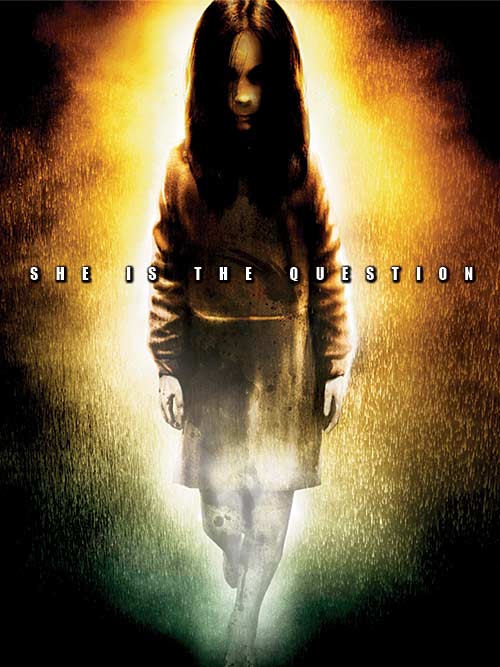
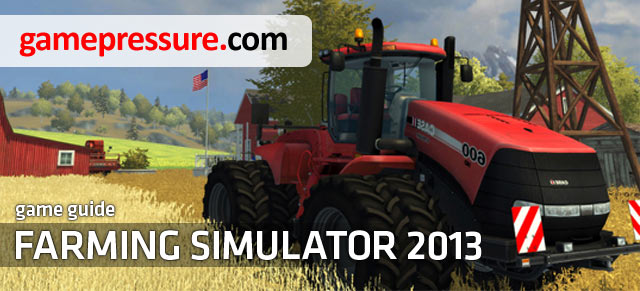
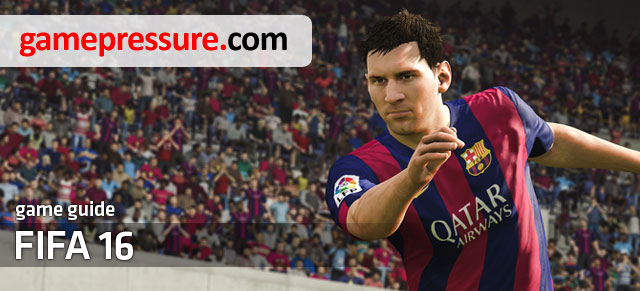
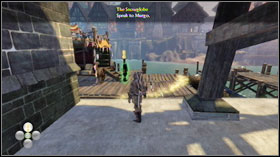
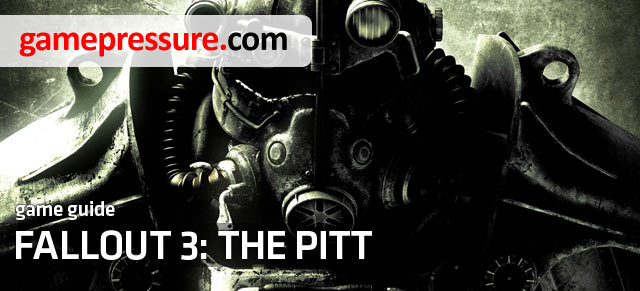 Fallout 3: The Pitt Game Guide & Walkthrough
Fallout 3: The Pitt Game Guide & Walkthrough Far Cry 2 Game Guide & Walkthrough
Far Cry 2 Game Guide & Walkthrough Farming Simulator 15 Game Guide & Walkthrough
Farming Simulator 15 Game Guide & Walkthrough Fable II: See the Future Game Guide & Walkthrough
Fable II: See the Future Game Guide & Walkthrough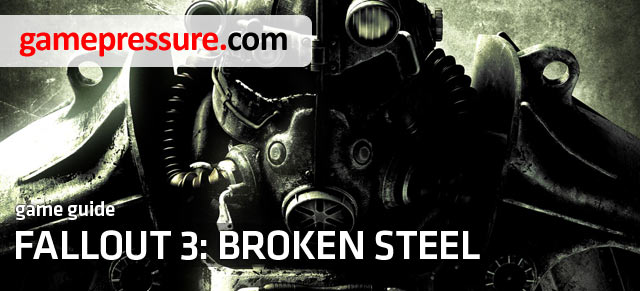 Fallout 3: Broken Steel Game Guide & Walkthrough
Fallout 3: Broken Steel Game Guide & Walkthrough